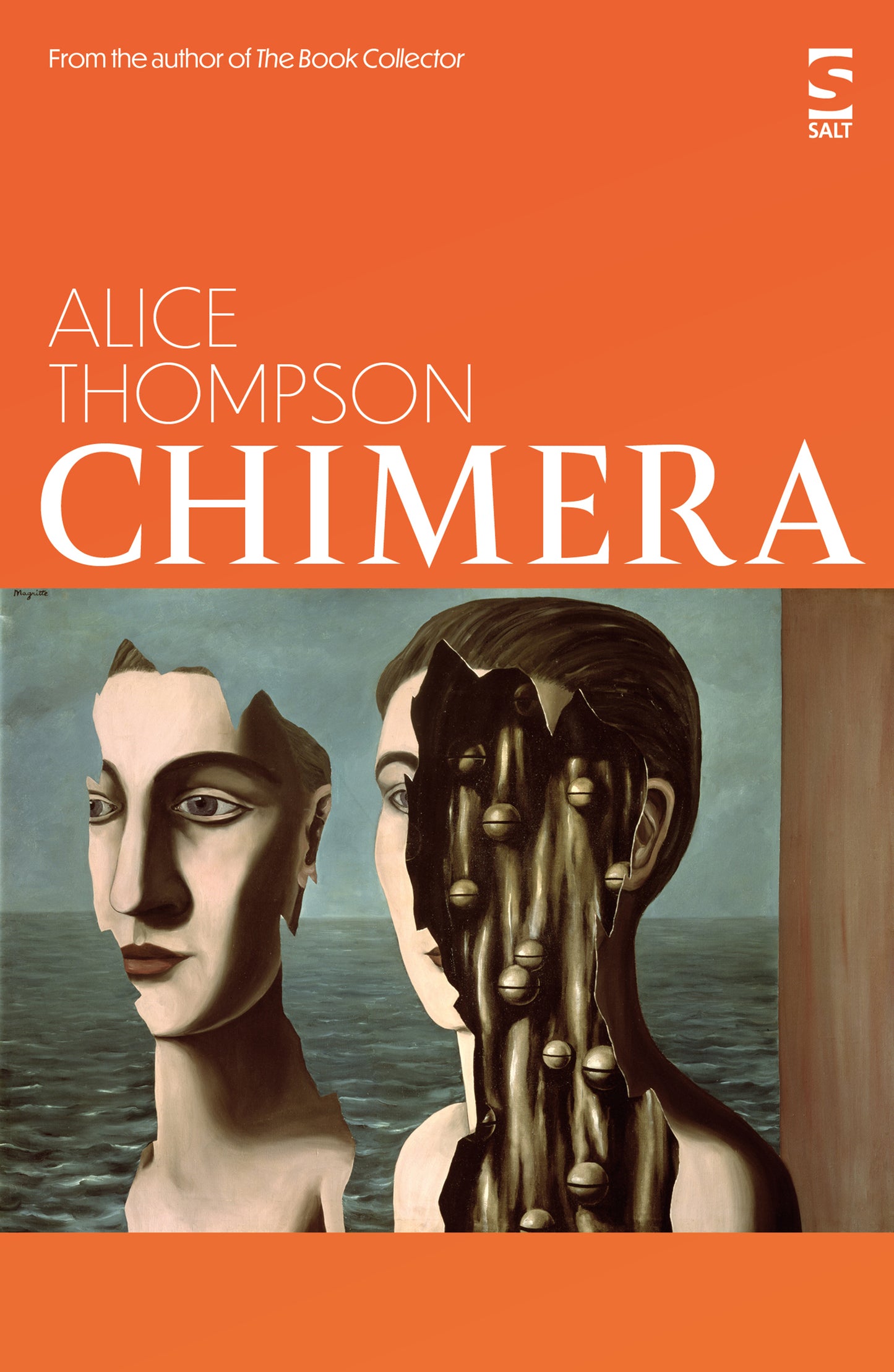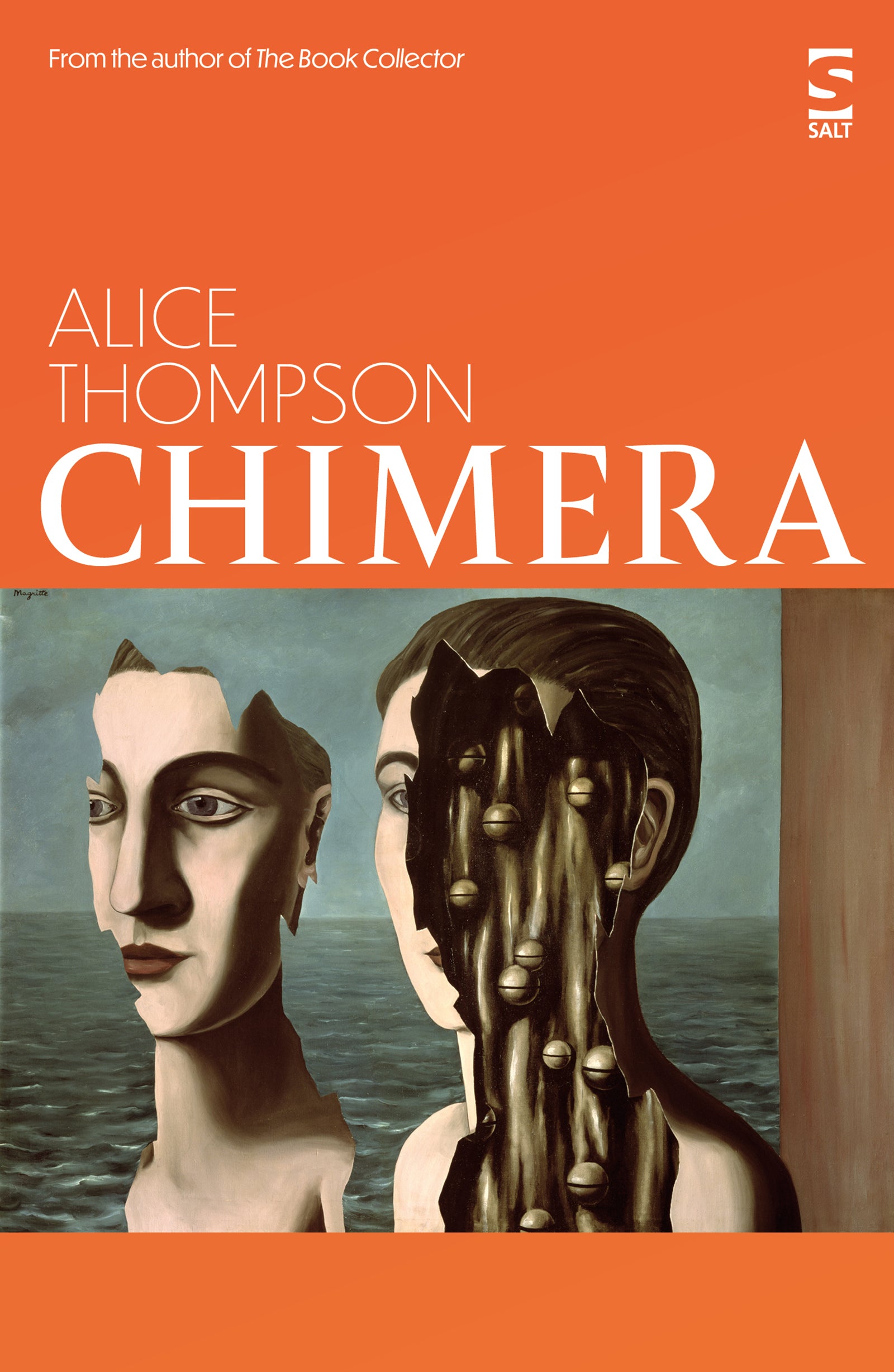Alice Thompson
Chimera
Chimera
ISBN:9781784632540
Couldn't load pickup availability
Synopsis
Alice Thompson’s gripping, deep space novel sees scientist and dream investigator Artemis travelling to the distant moon of Oneiros. Her ship, the Chimera has been sent to look for organisms that will help assuage Earth’s global warming, but it becomes clear on the journey that there are other disturbing reasons for the mission.
Accompanied by dryads, sophisticated AIs with synthetic bodies, nothing is quite as it seems, even desire. This is a story of transfiguration, dreams and identity. Are we just a template of memories and experiences, or is there something that makes us uniquely human?
Reviews of this Book
‘Chimera is a restatement of that old science fiction question “What is it that makes us human?”, but Thompson takes a very distinctive approach, the notion of “dreams as poetic metaphors of thought” allowing for explorations of the nature of consciousness and where it resides, the fear of losing one’s identity, the omnipresence of AI, the frightening implications of virtual reality and the suggestion of forces powerful enough to override both machine programming and human nature – all overlapping and interacting with each other in interesting and inventive ways.’ —Alastair Mabbott, The Herald
‘Set in a not-so-distant future, Alice Thompson’s eighth work of fiction, Chimera, is just that: a chimera of a novel. It also happens to be the name of the spaceship sent on a follow-up expedition to the Moon Oneiros. The mission is to look for micro-organisms that might alleviate the critical levels of carbon dioxide on Earth. But soon enough, we sense there is also a darker purpose.’ —Afric McGlinchey, Bookmunch
‘The book opens with a prologue in which a couple have been reunited following the woman’s return from Oneiros, a distant moon. Whatever happened during her mission has left her with impaired memory, and lacking the resentments felt before she left. She starts to write a novel, and it is this that makes up the bulk of the tale.’ —Jackie Law, neverimitate
‘Alice Thompson is one of British fiction’s best kept secrets. She has produced playful and provocative novels in several genres – supernatural, espionage, crime and postmodern metafiction. Chimera, her first book in eight years, is profound, accessible and entertaining sci-fi.’ —Andy Hedgecock, Morning Star
‘Novels about artificial intelligence are formally obliged to ask what it means to be human … this conundrum is the crankhandle of Chimera’s inventively unsettling plot. It will have you second-guessing the schlockier details: the technocratic ruling class being called the “ElITe”, a character opening a dryad’s “cranium hardware” and deadpanning the line: “his sense of self had gone askew”. It will also convince you that giving away our dreams and words on the cheap might prove just as catastrophic as pillaging the Earth.’ —Ash Caton, The Glasgow Review of Books
‘Chimera’s great accomplishment is its articulation of the feeling that, when we look out to space, we see the same planets and stars that ancient civilizations saw. Certainly it seems signifificant that, when the crew reaches the base on Oneiros, a virtual reality programme depicts their surroundings as a Roman villa – “an odd combination of ancient opulence and high-tech”. Life on a spaceship can be austere, devoid of warmth or desire, even fresh air. Thompson counterbalances her account of this existence with the oldest set of references in the English-speaking world. She gives us an AI named Troy, a fountain of poetry and philosophy (everything from Plato to e. e. cummings). His role, it seems, is to process human history as the crew crosses the cosmos, “faster than the speed of light”, into unknown territory.’ —Lily Herd, TLS
Praise for Previous Work
‘Angela Carter crossed with the Scottish diffidence of Muriel Spark.’ —Ali Smith
‘Fractured and lucid as a dream. Creepy and brilliant.’ —Ian Rankin
‘A gothic music video of a novel that whirls with weirdness... madly energetic ... genuinely scary.’ —Stephen King
‘Burnt Island is steeped in self-awareness, as a book about the process and effect of writing might be. It seems connected by literary electricity to other tales of isolation: The Shining, Pincher Martin, The Sea, The Sea.’ —John Self, The Guardian
‘The Book Collector shows a wry and sly mind at work throughout. Scottish literature would be thinner without this kind of challenging and cleverly-wrought writing.’ —Stuart Kelly, The Scotsman
‘Alice Thompson, one-time keyboard player for Eighties band The Woodentops, is now an established novelist, who has won praise from Ian Rankin and Stephen King. The horror master would no doubt approve of this slim Edwardian-era gothic, too, recalling as it does both Rebecca and The Silence Of The Lambs.’ —Stephanie Cross, The Daily Mail
‘With its gothic motifs, this dark portrait of a ‘fairytale’ marriage is full of mystery and suspense … an elegant and bloodily shocking entertainment.’ —Suzi Feay, The Guardian


